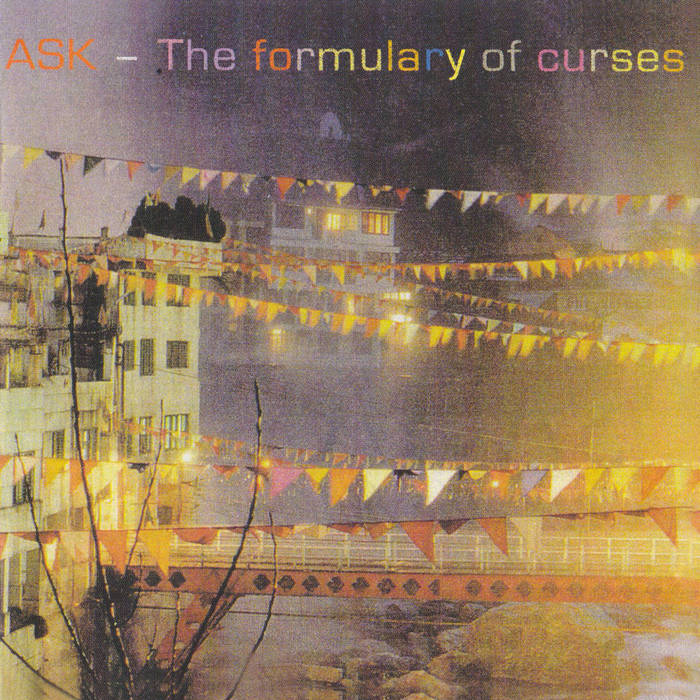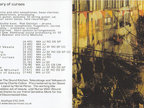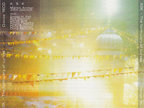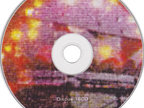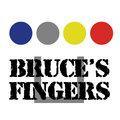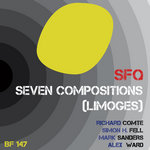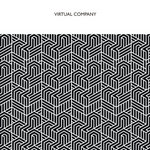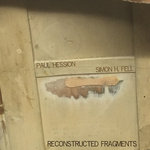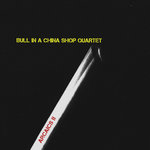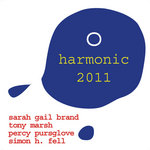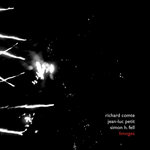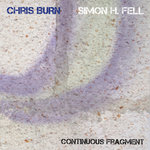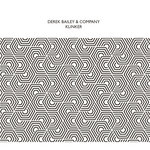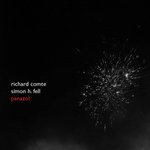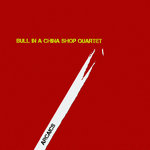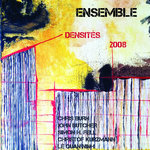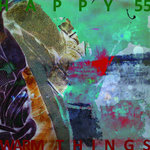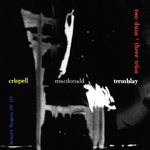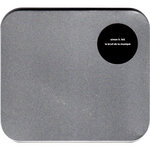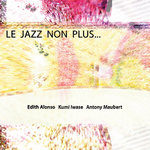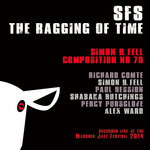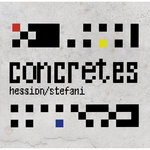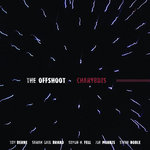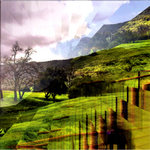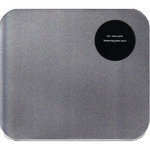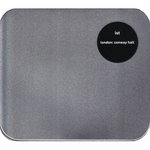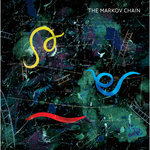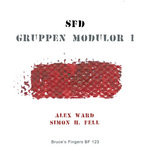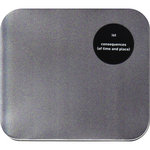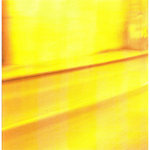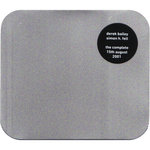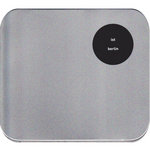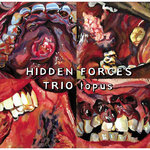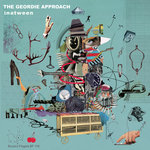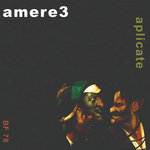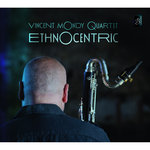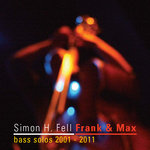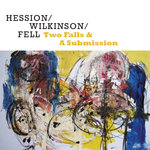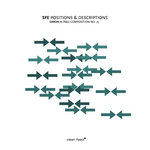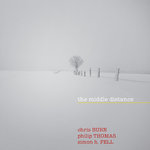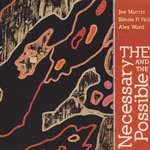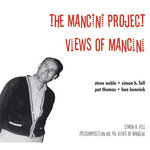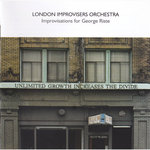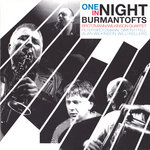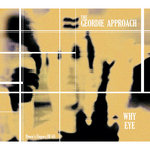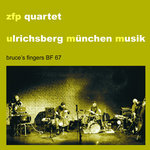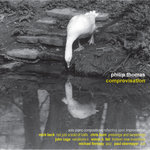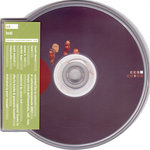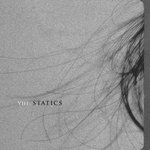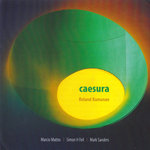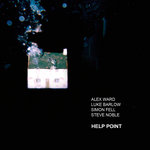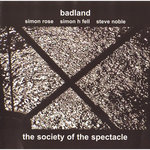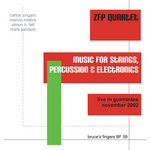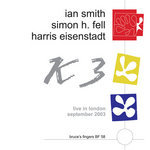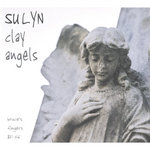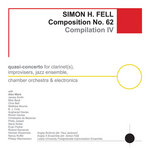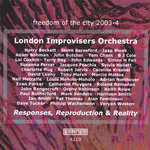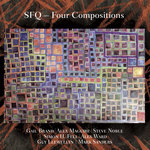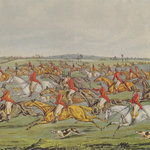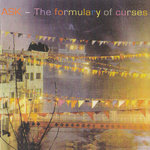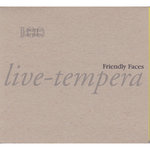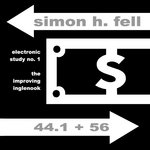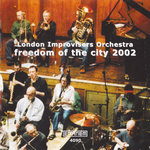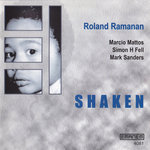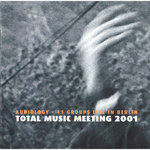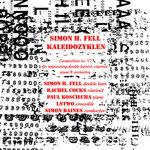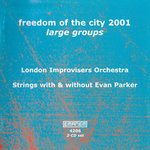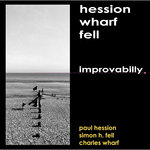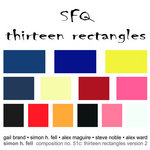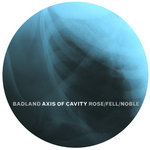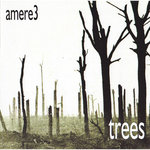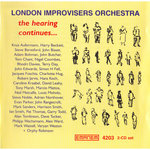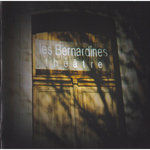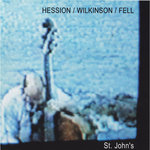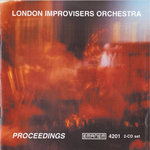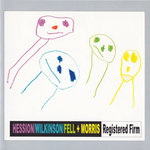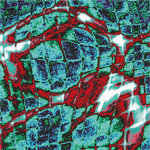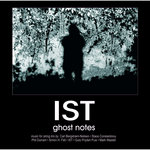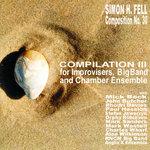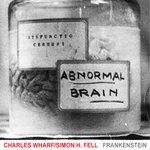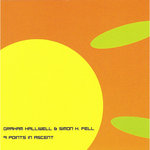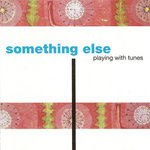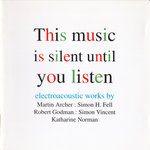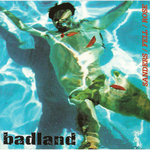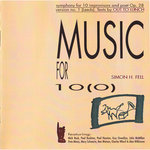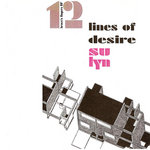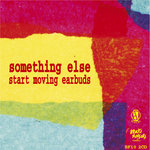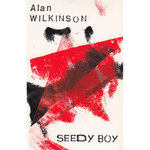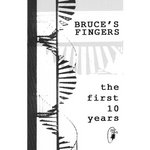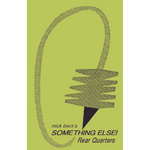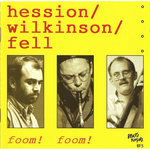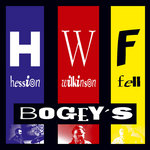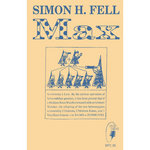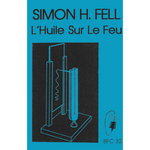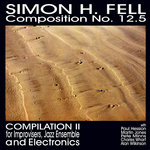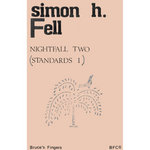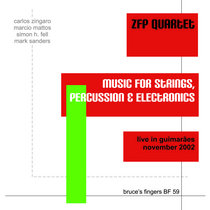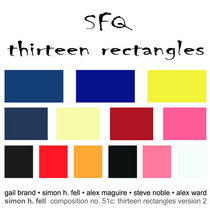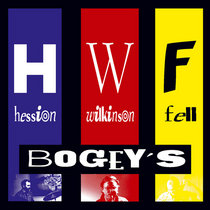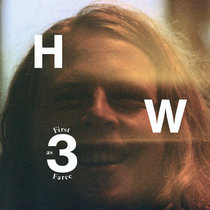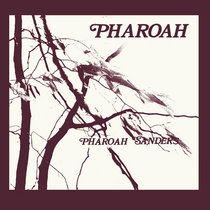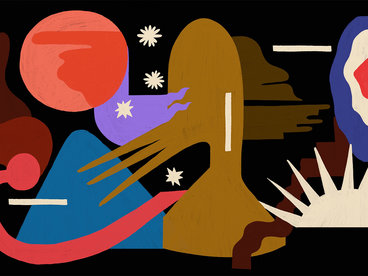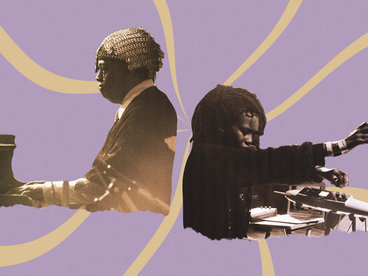
The Formulary Of Curses
by Ask
-
Compact Disc (CD)2004 CD release, in jewel box with 4-page booklet.
[Shipping prices are for airmail/priority delivery]ships out within 2 days€13 EUR or more
-
Compact Disc (CD)The same as the above, but without the jewel box.
If you have no need of the somewhat unloved and increasingly old-fashioned jewel box, we will send you the disc and all paper parts from the CD, without the plastic box.
The price is the same (we don't really need any more empty jewel boxes!), but it should offer you significant savings on shipping, especially if you order several discs and/or are outside Europe.ships out within 2 days€13 EUR or more
-
Subscription
Subscribe now to receive all the new music Bruce's Fingers creates, including 5 back-catalog releases, delivered instantly to you via the Bandcamp app for iOS and Android. You’ll also get access to subscriber-only exclusives. Learn more.Subscribe Now €20 EUR/year or more
1. |
|
about
Following on from 1998's Disconnected Bliss, Archer and Jasnoch reunite for second release as Ask. The formula(ry)?: jazz elements (emphasis on solos rather than collective improvisation, a realtime rhythm section and composed parts for a meaty sounding full horn section) + non-jazz elements (creative studio collage work, field recordings, noise and textural sections, some very upfront synth sounds) = an interesting record...
---------- press quotes ----------
"A diagram shaded with menace.....their numerous points of overt and tacit musical reference indicate options rather than obligations.....After repeated plays it remains resistant to reductive summary. That inbuilt resistance is itself a statement of value and intent" Julian Cowley WIRE
"Six years after their debut CD, the duo release a belated second offering. While Disconnected Bliss had been put under the sign of Richard Pinhas/Heldon, The Formulary of Curses main reference would be Soft Machine, despite the presence of tributes to Edward Vesala and Roscoe Mitchell. The trademark nasal organ of Mike Ratledge and the angular melodies of prime Softs (circa Third and Fourth) are almost everywhere and especially in Watercourse and Strawberry Blue. That's not the only surprise on the album. Song for Roscoe Mitchell is a very respectful pastiche of the Art Ensemble of Chicago's music (with a touch of Arkestra in the demeanor). The remainder of the album oscillates between pastoral tunes and recomposed free improvisation. All these reference points get blurred by the use of electronics, electroacoustics and various forms of recombination. The core of the music consists of John Jasnoch's guitars (including a lot of ud) and Martin Archer's keyboards, electronics and saxophones. Archer's usual suspects are brought in whenever the music claims it, from Simon H. Fell and Rob Dainton forming a jazzy rhythm section, to Charlie Collins, Simon Pugsley and Derek Saw turning into a Softs-like horn line. Collins, Chris Meloche and Chris Bywater (Archer's partner in the ambient duo Transient v Resident) contributed to the 10-minute Pods by reprocessing a handful of sopranino sax and ud duets. Compared to Disconnected Bliss, this album feels downright schizophrenic. Encompassing Archer's most difficult concepts (the same kind of composition with unrelated free improvisations and recombined elements one can hear on his solo albums) and leanings toward jazz-rock and free jazz, it pushes and tugs the listener in all directions at once. Definitely not an easy listen and much more diverse and confusing in terms of moods, approaches and references, The Formulary of Curses ultimately has a lot to offer and reveals its own sense of unity to the patient listener." François Couture ALL MUSIC GUIDE
"Five years into the 21st century, British composer/saxophonist Martin Archer must occasionally allow himself the odd smile of satisfaction. Beginning his career in the early 1980s as a improv saxophonist, by the mid-1990s the Sheffield-based musician immersed himself in creating relationships between electronics, technology and improvisation. Integrating random events and sound material into his recorded work before that idea become generally accepted, early on his partially notated/partially improvised sound collages showed the sort of musical maturity that it would take others years to attain. The Formulary Of Curses is the newest chapter in his ongoing saga, and it’s particularly noteworthy for several reasons. For a start, the 13 tracks, which feature up to seven musicians and a variety of multi-tracking and electronic extensions, now fit comfortably within the electro-acoustic improv genre -- one of the defining styles of this century. Furthermore, by reintroducing his reed playing into the mix on several pieces, Archer gives the CD the kind of jazz-like lilt that many more ponderous experiments lack. Probably the most perceptible view of how Archer operates is on Pier Groups, which only involves Archer and Jasnoch, and Song for Roscoe Mitchell which features all the instrumentalists. Built upon a field recording of a train arriving on a Southend pier, the former track features an urban pulse that is soon intercut with the bucolic tone of Archer on recorders and Jasnoch on acoustic guitar. The effect is as if a couple of medieval minstrels had wandered out of Sherwood Forest to concertize on a grimy concrete street. As the tune continues, repetitive note clusters from a legato bass clarinet meet up with the delayed pulsation and snap of electric guitar lines. As citified and rural tones succeed and often mask one another, the aural picture created is of Eric Dolphy circular breathing in the midst of a Masque performance. For its part, Song for Roscoe Mitchell suggests what would happen if an organ trio and a riffing Stax-Volt horn section were added to one of Mitchell’s more funk- oriented composition. Usually known for more cerebral work, here bassist Fell keeps the groove going, while Jasnoch’s flayed guitar timbres move through standard blues changes into ringing distortions. With the guitar soon trading licks with the vamping horn section as it reprises the theme, Dainton lays on a shuffle beat, as space is made for an artesian well-deep ‘bone solo from Pugsley, plus Archer duetting with himself on sopranino and alto. Without pause, the piece finally melts into the pure noise essay of A Senseless Act of Beauty which is the final track. Other compositions cycle through a panoply of references from rock music, traditional British folk ballads, modern and earlier chance music, atonal interpolations and outer space chants. That means Jasnoch especially, is charged with creating the fragmented finger picking of folkie Davy Graham at one point or the tortured, whining lines of bluesman Freddie King elsewhere. Archer meanwhile, can produce a West Coast sax line so cool that it nearly freezes the laser on one track, yet use the delay properties of processing elsewhere to output calliope-like tones. Off-kilter percussion sounds, jazz shakes from the brass, wild animal chirrups from the reeds, a re-imagining of distinctive improvisation on the ud and all sorts of shifting electronics also make an appearance The plectrumist’s background playing bluegrass and country music also means that a track like Strawberry Blues is only blues if the songs of mountain banjoists like Dock Boggs are included in the canon. Featuring the deep pitches of synthesized sound processing, it’s what would result if a WSM Barn Dance was held at IRCAM, a European centre of electronic research. Also illustrative is the aptly named Pod where stacked, multi-layered sopranino overblowing faces the watery pre-recorded sounds of French conversations. Archer calls this “the most technically complex piece on the record”, yet like good software the end result works well without having to know how the radically structured piece was created. Experience the music of someone who has created an unique soundworld though concept and experimentation." Ken Waxman JAZZ WORD
"I like what I'm hearing here.....the real surprise is the spontaneity that is retained through all the electronic processing. This isn't grandpa's jazz!" NEO-ZINE
"Ask have made one of the essential jazz records of the decade . . . they cover an astonishing amount of musical ground without ever losing coherence and focus . . . work that's microscopic in detail . . . a masterpiece." Duncan Heining JAZZWISE
---------- press quotes ----------
"A diagram shaded with menace.....their numerous points of overt and tacit musical reference indicate options rather than obligations.....After repeated plays it remains resistant to reductive summary. That inbuilt resistance is itself a statement of value and intent" Julian Cowley WIRE
"Six years after their debut CD, the duo release a belated second offering. While Disconnected Bliss had been put under the sign of Richard Pinhas/Heldon, The Formulary of Curses main reference would be Soft Machine, despite the presence of tributes to Edward Vesala and Roscoe Mitchell. The trademark nasal organ of Mike Ratledge and the angular melodies of prime Softs (circa Third and Fourth) are almost everywhere and especially in Watercourse and Strawberry Blue. That's not the only surprise on the album. Song for Roscoe Mitchell is a very respectful pastiche of the Art Ensemble of Chicago's music (with a touch of Arkestra in the demeanor). The remainder of the album oscillates between pastoral tunes and recomposed free improvisation. All these reference points get blurred by the use of electronics, electroacoustics and various forms of recombination. The core of the music consists of John Jasnoch's guitars (including a lot of ud) and Martin Archer's keyboards, electronics and saxophones. Archer's usual suspects are brought in whenever the music claims it, from Simon H. Fell and Rob Dainton forming a jazzy rhythm section, to Charlie Collins, Simon Pugsley and Derek Saw turning into a Softs-like horn line. Collins, Chris Meloche and Chris Bywater (Archer's partner in the ambient duo Transient v Resident) contributed to the 10-minute Pods by reprocessing a handful of sopranino sax and ud duets. Compared to Disconnected Bliss, this album feels downright schizophrenic. Encompassing Archer's most difficult concepts (the same kind of composition with unrelated free improvisations and recombined elements one can hear on his solo albums) and leanings toward jazz-rock and free jazz, it pushes and tugs the listener in all directions at once. Definitely not an easy listen and much more diverse and confusing in terms of moods, approaches and references, The Formulary of Curses ultimately has a lot to offer and reveals its own sense of unity to the patient listener." François Couture ALL MUSIC GUIDE
"Five years into the 21st century, British composer/saxophonist Martin Archer must occasionally allow himself the odd smile of satisfaction. Beginning his career in the early 1980s as a improv saxophonist, by the mid-1990s the Sheffield-based musician immersed himself in creating relationships between electronics, technology and improvisation. Integrating random events and sound material into his recorded work before that idea become generally accepted, early on his partially notated/partially improvised sound collages showed the sort of musical maturity that it would take others years to attain. The Formulary Of Curses is the newest chapter in his ongoing saga, and it’s particularly noteworthy for several reasons. For a start, the 13 tracks, which feature up to seven musicians and a variety of multi-tracking and electronic extensions, now fit comfortably within the electro-acoustic improv genre -- one of the defining styles of this century. Furthermore, by reintroducing his reed playing into the mix on several pieces, Archer gives the CD the kind of jazz-like lilt that many more ponderous experiments lack. Probably the most perceptible view of how Archer operates is on Pier Groups, which only involves Archer and Jasnoch, and Song for Roscoe Mitchell which features all the instrumentalists. Built upon a field recording of a train arriving on a Southend pier, the former track features an urban pulse that is soon intercut with the bucolic tone of Archer on recorders and Jasnoch on acoustic guitar. The effect is as if a couple of medieval minstrels had wandered out of Sherwood Forest to concertize on a grimy concrete street. As the tune continues, repetitive note clusters from a legato bass clarinet meet up with the delayed pulsation and snap of electric guitar lines. As citified and rural tones succeed and often mask one another, the aural picture created is of Eric Dolphy circular breathing in the midst of a Masque performance. For its part, Song for Roscoe Mitchell suggests what would happen if an organ trio and a riffing Stax-Volt horn section were added to one of Mitchell’s more funk- oriented composition. Usually known for more cerebral work, here bassist Fell keeps the groove going, while Jasnoch’s flayed guitar timbres move through standard blues changes into ringing distortions. With the guitar soon trading licks with the vamping horn section as it reprises the theme, Dainton lays on a shuffle beat, as space is made for an artesian well-deep ‘bone solo from Pugsley, plus Archer duetting with himself on sopranino and alto. Without pause, the piece finally melts into the pure noise essay of A Senseless Act of Beauty which is the final track. Other compositions cycle through a panoply of references from rock music, traditional British folk ballads, modern and earlier chance music, atonal interpolations and outer space chants. That means Jasnoch especially, is charged with creating the fragmented finger picking of folkie Davy Graham at one point or the tortured, whining lines of bluesman Freddie King elsewhere. Archer meanwhile, can produce a West Coast sax line so cool that it nearly freezes the laser on one track, yet use the delay properties of processing elsewhere to output calliope-like tones. Off-kilter percussion sounds, jazz shakes from the brass, wild animal chirrups from the reeds, a re-imagining of distinctive improvisation on the ud and all sorts of shifting electronics also make an appearance The plectrumist’s background playing bluegrass and country music also means that a track like Strawberry Blues is only blues if the songs of mountain banjoists like Dock Boggs are included in the canon. Featuring the deep pitches of synthesized sound processing, it’s what would result if a WSM Barn Dance was held at IRCAM, a European centre of electronic research. Also illustrative is the aptly named Pod where stacked, multi-layered sopranino overblowing faces the watery pre-recorded sounds of French conversations. Archer calls this “the most technically complex piece on the record”, yet like good software the end result works well without having to know how the radically structured piece was created. Experience the music of someone who has created an unique soundworld though concept and experimentation." Ken Waxman JAZZ WORD
"I like what I'm hearing here.....the real surprise is the spontaneity that is retained through all the electronic processing. This isn't grandpa's jazz!" NEO-ZINE
"Ask have made one of the essential jazz records of the decade . . . they cover an astonishing amount of musical ground without ever losing coherence and focus . . . work that's microscopic in detail . . . a masterpiece." Duncan Heining JAZZWISE
credits
released January 1, 2004
Charlie Collins: flute, clarinet, sound processing
Martin Archer: sopranino & alto saxophones, bass clarinet, recorders, keyboards, electronics
Derek Saw: tenor & baritone saxophones, fluegelhorn, cornet
Simon Pugsley: trombone, trumpet
John Jasnoch: electric & acoustic guitars, ud, mandolin, lap steel, tenor banjo, field recordings
Simon H. Fell: double bass
Rob Dainton: drums
Chris Bywater: sound processing
Chris Meloche: sound processing
2004 (70 mins.) in jewel box
© Discus 2004
full track listing:
01. Watercourse [4m45s]
02. Mirny [3m46s]
03. Song for Edward Vesala [3m22s]
04. Minipod [1m15s]
05. Kings of Pressure [9m33s]
06. The Cold Clean Rain [2m35s]
07. The Formulary of Curses [3m58s]
08. Pier Groups [8m51s]
09. Carbon Date [2m16s]
10. Pods [10m16s]
11. Strawberry Blue [3m44s]
12. Song for Roscoe Mitchell [7m57s]
13. A Senseless Act of Beauty [7m48s]
Charlie Collins: flute, clarinet, sound processing
Martin Archer: sopranino & alto saxophones, bass clarinet, recorders, keyboards, electronics
Derek Saw: tenor & baritone saxophones, fluegelhorn, cornet
Simon Pugsley: trombone, trumpet
John Jasnoch: electric & acoustic guitars, ud, mandolin, lap steel, tenor banjo, field recordings
Simon H. Fell: double bass
Rob Dainton: drums
Chris Bywater: sound processing
Chris Meloche: sound processing
2004 (70 mins.) in jewel box
© Discus 2004
full track listing:
01. Watercourse [4m45s]
02. Mirny [3m46s]
03. Song for Edward Vesala [3m22s]
04. Minipod [1m15s]
05. Kings of Pressure [9m33s]
06. The Cold Clean Rain [2m35s]
07. The Formulary of Curses [3m58s]
08. Pier Groups [8m51s]
09. Carbon Date [2m16s]
10. Pods [10m16s]
11. Strawberry Blue [3m44s]
12. Song for Roscoe Mitchell [7m57s]
13. A Senseless Act of Beauty [7m48s]
license
all rights reserved
tags
about
Bruce's Fingers Saint Dizier Leyrenne, France
Bruce's Fingers is a record label founded in 1983 by bassist, composer & improviser Simon H. Fell.
The label's
publications (which also include books and scores) are centred around free / contemporary jazz, improvised music & contemporary / experimental composition.
Initially focussed on Fell's own work, the BF project has since expanded to include many other things besides...
... more
discography
-
Mar 2020
-
Mar 2020
-
Mar 2020
-
Feb 2020
-
Mar 2019
-
Jan 2019
-
Oct 2018
-
Sep 2018
-
Mar 2018
-
Mar 2018
-
Dec 2017
-
Nov 2017
-
Dec 2016
-
Dec 2016
-
Dec 2016
-
Dec 2016
-
Oct 2015
-
Oct 2015
-
Oct 2015
-
Aug 2015
-
Aug 2015
-
Mar 2015
-
Nov 2014
-
Oct 2014
-
Sep 2014
-
Jul 2014
-
Feb 2014
-
Oct 2013
-
Sep 2013
-
Jun 2013
-
Jun 2013
-
Jan 2013
-
Jan 2013
-
Aug 2012
-
Jan 2012
-
Oct 2011
-
Oct 2011
-
Aug 2011
-
Dec 2009
-
Jul 2009
-
Dec 2008
-
Oct 2008
-
Dec 2007
-
Jul 2007
-
Jul 2007
-
Apr 2007
-
Nov 2006
-
May 2006
-
Mar 2006
-
Oct 2005
-
Sep 2005
-
Sep 2005
-
Aug 2005
-
Jul 2005
-
Jul 2005
-
Jul 2005
-
Dec 2004
-
Jul 2004
-
Jan 2004
-
Dec 2003
-
Jul 2003
-
Jun 2003
-
Dec 2002
-
Oct 2002
-
Jun 2002
-
Jun 2002
-
Jun 2002
-
May 2002
-
May 2002
-
Oct 2001
-
Aug 2001
-
Jun 2001
-
Sep 2000
-
Sep 2000
-
Mar 2000
-
Sep 1999
-
Dec 1998
-
Dec 1998
-
Nov 1998
-
Jul 1998
-
May 1998
-
Apr 1998
-
Mar 1997
-
Dec 1996
-
May 1996
-
Aug 1995
-
Jul 1995
-
Nov 1994
-
Aug 1994
-
Apr 1993
-
Nov 1992
-
Aug 1992
-
Sep 1991
-
Aug 1991
-
Jan 1991
-
Mar 1990
-
Jul 1986
contact / help
Bruce's Fingers recommends:
If you like The Formulary Of Curses, you may also like:
